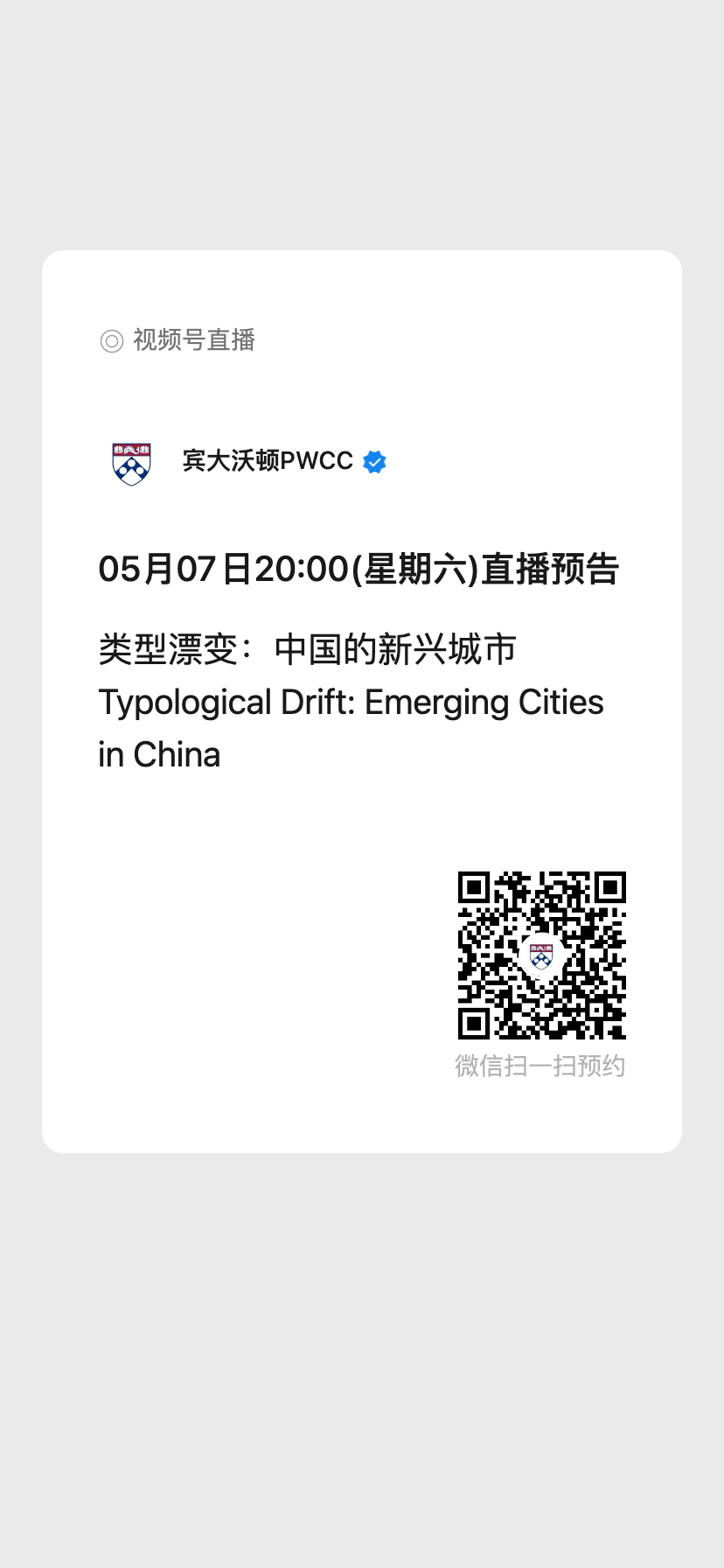05月07日
周六
05.07 Webinar | Typological Drift: Emerging Cities in China 类型漂变:中国的新兴城市
2022年5月7日 星期六 20:00 至 22:30 Online 线上活动
价格: 免费
用微信客户端扫描并分享此活动

宾大沃顿中国中心 Penn Wharton China Center
宾大沃顿中国中心 Penn Wharton China Center
关于宾大沃顿中国中心
宾大沃顿中国中心由美国宾夕法尼亚大学和沃顿商学院于2015年3月共同创立,旨在进一步加强宾大与中国的学术和文化交流。宾大沃顿中国中心将为宾大教授、学生、在华校友和各界友人进行知识分享和文化交流提供服务,也将成为连接中国和宾夕法尼亚大学的纽带,促进双方在研究和教学领域的合作。
About Penn Wharton China Center
The opening of the Penn Wharton China Center (PWCC) in March 2015 represents a substantial commitment to advance a long history of engagement with China by the Wharton School and its parent university, the University of Pennsylvania (Penn), in an increasingly interconnected global environment. PWCC provides on-the-ground support for the growing numbers of programs and collaborations between Penn’s 12 schools and many academic, government, and business partners throughout China.
查看更多
85871740
chinaevents@pwcc.upenn.edu
浏览: 1,735
Hi there,
You are invited to a Zoom webinar.
When: May 7, 2022 08:00 PM Beijing, Shanghai
Topic: 05.07 | Typological Drift: Emerging Cities in China
Please click the link below to join the webinar:
https://upenn.zoom.us/j/95233302240?pwd=bVgwZG9Obk03MXoydksxUWU2V0c4UT09
Passcode: 513754

 展开详情
展开详情
 收起
收起
关于宾大沃顿中国中心
宾大沃顿中国中心由美国宾夕法尼亚大学和沃顿商学院于2015年3月共同创立,旨在进一步加强宾大与中国的学术和文化交流。宾大沃顿中国中心将为宾大教授、学生、在华校友和各界友人进行知识分享和文化交流提供服务,也将成为连接中国和宾夕法尼亚大学的纽带,促进双方在研究和教学领域的合作。
About Penn Wharton China Center
The opening of the Penn Wharton China Center (PWCC) in March 2015 represents a substantial commitment to advance a long history of engagement with China by the Wharton School and its parent university, the University of Pennsylvania (Penn), in an increasingly interconnected global environment. PWCC provides on-the-ground support for the growing numbers of programs and collaborations between Penn’s 12 schools and many academic, government, and business partners throughout China.
 友付提供技术支持
友付提供技术支持
www.yoopay.cn
400.0697.118